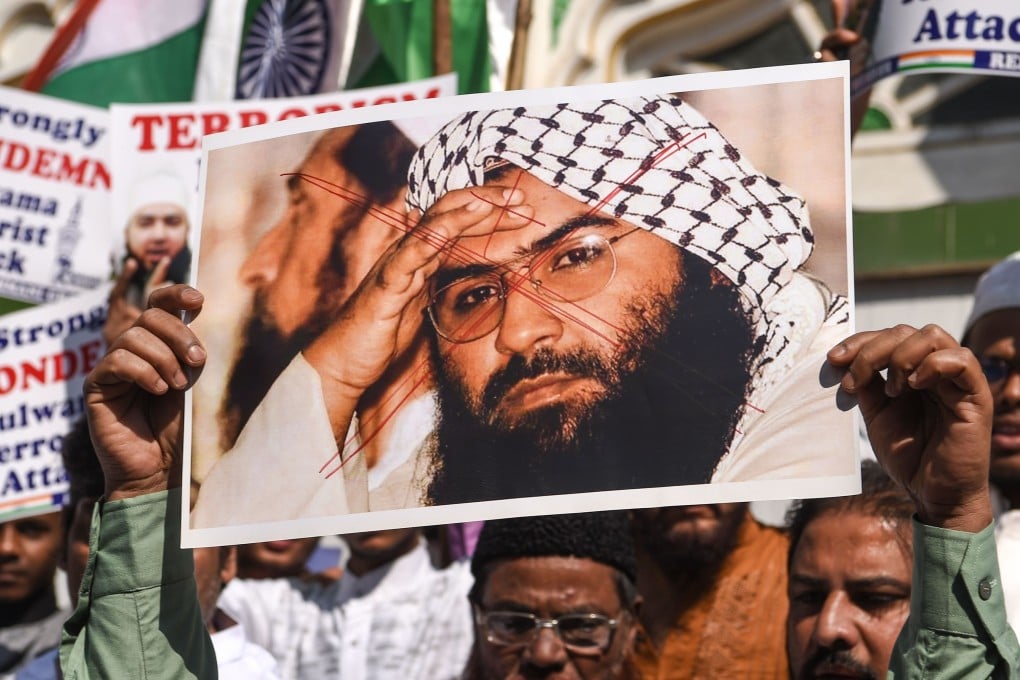China resists India’s call to have head of Jaish-e-Mohammed labelled a terrorist
- Beijing says UN rules make it impossible to back New Delhi’s appeal but it will ‘continue to handle relevant sanctions issue in a constructive and responsible manner’
- China’s intransigence likely to lead to more mistrust towards Beijing in India, academic says

China has rejected India’s call to have the head of a Pakistan-based militant group put on a United Nations terror list, sparking a fresh row in the aftermath of one of the deadliest attacks on Indian security forces in the restive Kashmir region.
The car bomb attack by the Jaish-e-Mohammed (JeM) terrorist group in India-administered Kashmir has turned the spotlight back on China, which has long refused to have the group’s founder Masood Azhar listed as a terrorist, a position most analysts say Beijing holds out of allegiance to Islamabad, its so-called all-weather ally.
China’s official line is that there is not enough evidence to sanction Azhar under UN rules – there have been calls to do so for at least a decade – even though the JeM has been designated as a terrorist organisation since 2001.
“The 1267 Committee of the Security Council has a clear stipulation on the listing and procedure of terrorist organisations,” Chinese foreign ministry spokesman Geng Shuang said on Friday. “China will continue to handle the relevant sanctions issue in a constructive and responsible manner.”
After the attack in the town of Pulwama on Thursday, which killed at least 44 paramilitary personnel, New Delhi called for the “complete isolation of Pakistan” for its alleged role in the attack, which Islamabad denies. While the Indian government had targeted its rhetoric at Pakistan, there was likely to be mounting mistrust towards Beijing over its blocking of terrorist sanctions, particularly as nationalism came to the fore in India’s upcoming elections, analysts said.